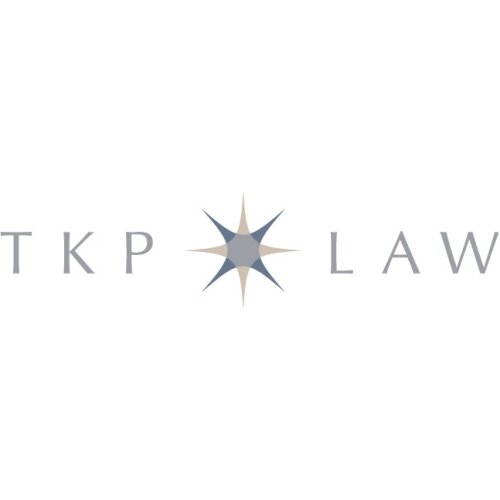Best Wrongful Termination Lawyers in Tokyo
Share your needs with us, get contacted by law firms.
Free. Takes 2 min.
List of the best lawyers in Tokyo, Japan
About Wrongful Termination Law in Tokyo, Japan
Wrongful termination law in Tokyo, Japan, is a complex area of employment law that deals with the legality of an employee's dismissal. In Japan, employment protection is strong, and wrongful termination is a serious matter. As a general rule, employers must have justifiable reasons for dismissing an employee, and these reasons are subject to scrutiny under Japanese labor law. Tokyo, being Japan's capital and a major business hub, encounters a substantial number of such cases, which are often handled within the framework of rules established by the Labor Standards Law and the Civil Code, as well as a variety of interpretive guidelines provided by the Supreme Court of Japan.
Why You May Need a Lawyer
Legal assistance may be required in situations where you suspect your termination was without just cause, or in conflict with the terms laid out in your employment contract, law, or company policy. For instance, if you were fired without proper notice or due to discriminatory reasons such as race, gender, or disability, seeking legal advice would be prudent. Additionally, if you believe you were forced to resign (constructive dismissal), or if there have been violations in the layoff process during restructuring or downsizing, a lawyer can help you understand your rights and options.
Local Laws Overview
Key aspects of local laws relevant to wrongful termination in Tokyo include the Labor Standards Law, which sets out the minimum standards for working conditions, including termination procedures. An employer generally needs to give at least 30 days' notice or pay in lieu of notice before termination. Moreover, the Labor Contract Law specifies that employers must have "objective and reasonable" grounds to dismiss an employee, and the dismissal must not be considered "inappropriate" in general societal terms. The role of the Labor Tribunal System also comes to play in resolving disputes quickly and inexpensively compared to the formal courts. It is also important to understand that different rules may apply to unionized workplaces and those covered by collective agreements.
Frequently Asked Questions
What qualifies as wrongful termination in Tokyo?
In Tokyo, wrongful termination typically involves dismissals that lack just cause, such as discrimination, retaliation, violation of explicit contract terms, or failure to follow the proper termination procedure.
Can I sue for wrongful termination without a written contract?
Yes, even if you don't have a written contract, verbal agreements and the implied terms from the Labor Standards Law can provide a basis for a claim of wrongful termination.
How long do I have to file a claim for wrongful termination?
There are different limitation periods for bringing a claim, but generally, a Labor Tribunal claim should be filed within two years of the termination.
What remedies might be available if my termination is deemed wrongful?
Remedies may include reinstatement in your position, compensation for lost wages, damages for emotional distress, and/or a severance payment.
Is it necessary to attempt mediation before going to court?
It is not a strict requirement, but mediation through a Labor Office or the Labor Tribunal System is often recommended as a faster and less costly way of resolving disputes.
What should I do if my employer offers me a severance package?
Before accepting a severance package, it is advisable to consult with a lawyer to ensure that your rights are protected and the package is fair under the circumstances of your termination.
Are foreign workers in Tokyo protected from wrongful termination?
Yes, foreign workers have the same employment rights as Japanese workers, including the right to challenge a wrongful termination.
How is a 'just cause' for termination legally defined?
'Just cause' is not explicitly defined in legislation but relies on jurisprudence and is interpreted to mean a reasonable and fair reason based on objective facts.
Can I be terminated while on sick leave?
Termination while on sick leave can be complicated and may constitute wrongful termination if not handled correctly by the employer.
Does a company need to provide a reason for termination?
Yes, an employer is obligated to provide a reason for termination, which may be challenged by the employee if it lacks legitimacy.
Additional Resources
Individuals seeking information on wrongful termination can consult the Japanese Ministry of Health, Labour and Welfare, which provides resources and guidance on labor laws. Local labor standards inspection offices offer advice and can assist with dispute resolution. Additionally, the Tokyo Bar Association provides referrals to lawyers who specialize in employment law.
Next Steps
If you need legal assistance in wrongful termination, consider taking the following steps: Document all communications and reasons provided by your employer for termination. Consult with a lawyer who specializes in Japanese labor law to understand your rights and the merits of your case. If advised, initiate a claim through the Labor Tribunal System or the appropriate civil court. Contemplate alternative dispute resolution options, such as mediation, as they could provide a quicker resolution. Ensure to act within the statute of limitations to prevent your claim from becoming time-barred.
Lawzana helps you find the best lawyers and law firms in Tokyo through a curated and pre-screened list of qualified legal professionals. Our platform offers rankings and detailed profiles of attorneys and law firms, allowing you to compare based on practice areas, including Wrongful Termination, experience, and client feedback.
Each profile includes a description of the firm's areas of practice, client reviews, team members and partners, year of establishment, spoken languages, office locations, contact information, social media presence, and any published articles or resources. Most firms on our platform speak English and are experienced in both local and international legal matters.
Get a quote from top-rated law firms in Tokyo, Japan — quickly, securely, and without unnecessary hassle.
Disclaimer:
The information provided on this page is for general informational purposes only and does not constitute legal advice. While we strive to ensure the accuracy and relevance of the content, legal information may change over time, and interpretations of the law can vary. You should always consult with a qualified legal professional for advice specific to your situation.
We disclaim all liability for actions taken or not taken based on the content of this page. If you believe any information is incorrect or outdated, please contact us, and we will review and update it where appropriate.














